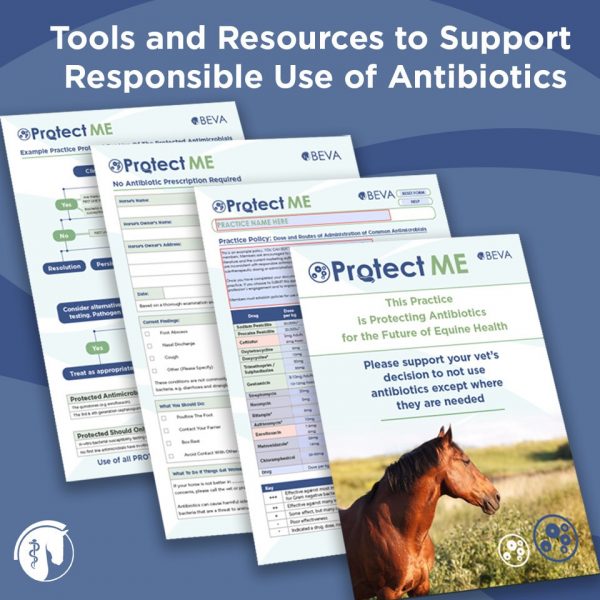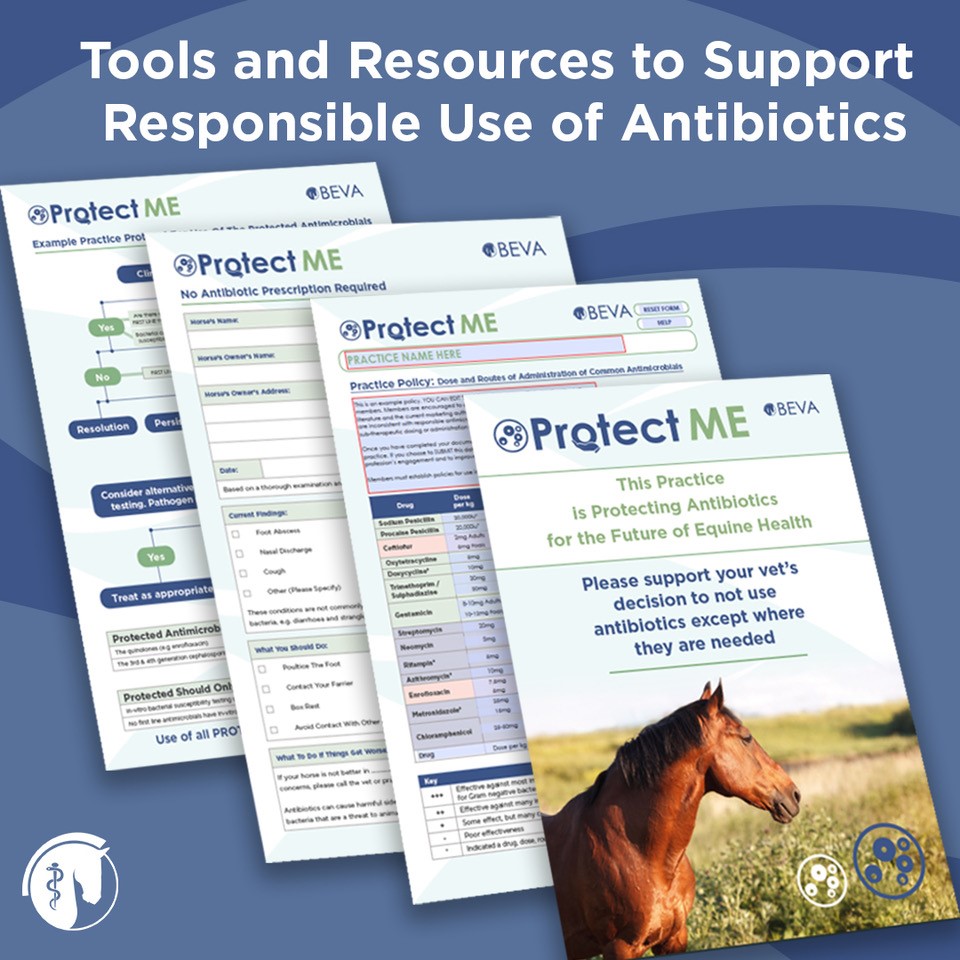The British Equine Veterinary Association (BEVA) is calling on horse owners to support vets’ efforts to reduce the risk of antimicrobial resistance by better understanding where and when antibiotics are needed.
In preparation for World Antimicrobial Awareness Week 18-24 November, BEVA has upgraded its award winning PROTECT ME toolkit, which includes resources for horse owners as well as for vets, to encourage the continued reduction of antimicrobials, particularly those that are critically important for the treatment of people.
Antibiotic resistance is increasing throughout human and veterinary medicine. At the same time there are no new classes of antibiotics being produced. This means that there is an increasing population of ‘superbugs’ that are resistant to many or all antibiotics and in some cases cannot be treated successfully.
“All horse owners, trainers and vets have a responsibility to prioritise appropriate antibiotic use in order that antibiotics will still be available to treat horses in the future,” said David Rendle, Chair of BEVA’s Health and Medicines Committee. “Multi-resistant bacteria are an increasing problem in equine practice. Affected horses have longer recovery times and their owners are faced with higher costs of treatment. Regrettably some multi-resistant infections simply do not respond to treatment, leading to euthanasia. We must all take responsibility for slowing the development of resistance.”
BEVA’s PROTECT ME toolkit contains a poster and fact sheet for horse owners and shareable social media content. There is also a ‘no antibiotic required’ non-prescription form, together with an information sheet for horse owners to help them understand when and why no antibiotics are required.

BEVA hopes these resources will help horse owners understand more about the importance of antimicrobial resistance and why antibiotics are not always required.
Follow BEVA’s quick tips for horse owners to help support the responsible use of antibiotics:
- Support your vet when they take swabs or samples for bacterial culture and susceptibility; this directs the choice of appropriate antibiotics and prevents unnecessary use of antibiotics if the bacteria are resistant, improving treatment and identifying resistant bacteria.
- Only use antibiotics which have been specifically prescribed for your horse for the current condition.
- Contact your vet promptly if the condition is not improving.
- Ensure your horse receives the full dose each time and contact your vet if they are not – underdosing promotes the development of resistance.
- Do not try and persuade your vet to prescribe antibiotics if they tell you that they are not warranted at this time – trust their judgement.
- Always practice good hygiene to decrease contamination between horses and between horses and people, further reducing pressure to use antibiotics.
“The veterinary profession relies on the support of horse owners for the continued responsible use of antibiotics,” said David. “It’s in your hands to help safeguard the efficacy of the medications we have for the future and there is no better time than during World Antimicrobial Awareness Week, to learn more about the importance of antimicrobial resistance and how to do your bit to help slow it.”
Ask your vet for further information about BEVA’s campaign or visit www.beva.org.uk/Protect-Me












